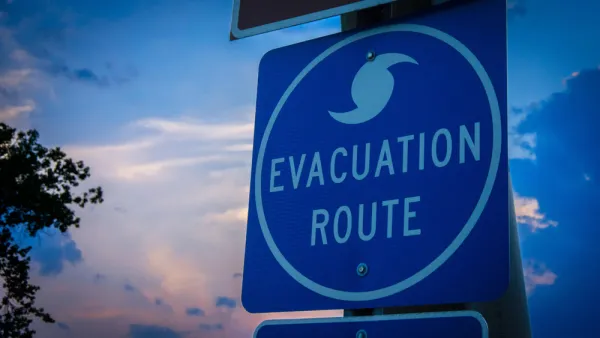In GeekWire, Chuck Wolfe covers an atypical urban planning and policy gathering called an “Urban Resilience Hackathon,” which was held at the University of Washington in Seattle late last month. For a day, the event showcased collaborative problem solving and innovative thinking in addressing urban challenges.

Writing for GeekWire—and as a hackathon participant—Chuck Wolfe explains how the hackathon brought together volunteer organizations, state and local government, students, and researchers to co-develop testable “resilience pilot projects” that could help Seattle be more prepared for future disruptions.
DemocracyLab, a “tech for good” nonprofit, helped facilitate the hackathon, which had support from the National Science Foundation LEAP-HI project, and the UW’s Department of Urban Design and Planning.
The UW hackathon centered on various pitches each addressing a different aspect of urban resilience to be tested against a future earthquake, pandemic, excessive heat event, or massive airline flight grounding. The pitches were also assessed for support of the Seattle Climate Action Plan and Seattle Race and Justice Initiative.
The range of projects presented, from urban system solutions to emergency water storage, speaks to the diverse issues that require further preparation and collaboration.
“Crises don’t allow time to invent responses from scratch,” said Dr. Dan Abramson, one of the event’s organizers from the UW Department of Urban Design and Planning. “Cities need to be adaptable, and the most adaptable cities are those that have a deep reserve of policies and programs they can draw on to keep themselves vital when normal activities are disrupted.”
FULL STORY: Can tech help cities plan for disasters? 7 ideas from an urban resilience hackathon

National Parks Layoffs Will Cause Communities to Lose Billions
Thousands of essential park workers were laid off this week, just before the busy spring break season.

Retro-silient?: America’s First “Eco-burb,” The Woodlands Turns 50
A master-planned community north of Houston offers lessons on green infrastructure and resilient design, but falls short of its founder’s lofty affordability and walkability goals.

Delivering for America Plan Will Downgrade Mail Service in at Least 49.5 Percent of Zip Codes
Republican and Democrat lawmakers criticize the plan for its disproportionate negative impact on rural communities.

Test News Post 1
This is a summary

Test News Headline 46
Test for the image on the front page.

Balancing Bombs and Butterflies: How the National Guard Protects a Rare Species
The National Guard at Fort Indiantown Gap uses GIS technology and land management strategies to balance military training with conservation efforts, ensuring the survival of the rare eastern regal fritillary butterfly.
Urban Design for Planners 1: Software Tools
This six-course series explores essential urban design concepts using open source software and equips planners with the tools they need to participate fully in the urban design process.
Planning for Universal Design
Learn the tools for implementing Universal Design in planning regulations.
EMC Planning Group, Inc.
Planetizen
Planetizen
Mpact (formerly Rail~Volution)
Great Falls Development Authority, Inc.
HUDs Office of Policy Development and Research
NYU Wagner Graduate School of Public Service





























